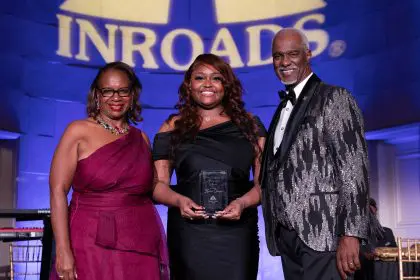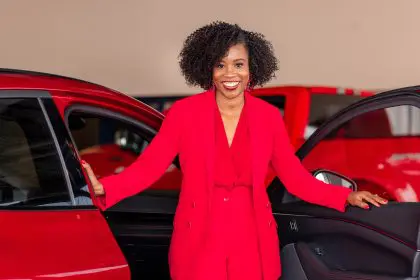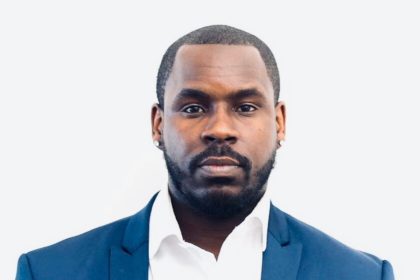
Winston Burns’ business is knowing what air travelers want. In 1997, after working for more than a decade in the banking, finance and entertainment industries, Burns started Newburns Management Group, which he co-owns and manages with Wendy, his wife of 20 years and the company’s chief operating officer. Newburns owns and operates seven stores inside New Orleans’ Louis Armstrong International Airport: five Westwin News & Gifts locations, which offer a wide selection of reading materials, novelty items, snacks, beverages, health and beauty products and local souvenirs, and two Creole Kitchen specialty stores, which carry products indigenous to Louisiana, including hot sauces, beignet mixes and chicory-laced coffee as well as notable brands such as Community, Café Du Monde, Essence of Emeril and Zatarains that capture the essence and flavor of the Cajun/Creole experience. In a partnership with The Hudson Group, Newburns also operates another 33 stores at four other airports: Orlando International Airport in Florida, Lambert-St. Louis International Airport in Missouri and Ronald Reagan Washington National Airport and Dulles International Airport in the District of Columbia. The youngest of five children, Burns said his parents instilled in him at a young age the value of hard work and taking pride in everything he does – advice that has served him well throughout his varying careers. When not traveling to different cities on business, Burns is actively involved in the community, working closely with the National Urban League in marketing its service programs and with city officials in his native New Orleans to ensure that The Big Easy remains, as he puts it, the place that never ceases to inspire him with its culture and customs, music and Mardi Gras, great food and great people.
What inspired you to become an entrepreneur?
I was always driven to succeed at any challenge. When I finished Morehouse College in 1982, I worked in banking for four years in in Houston, and then for several financial institutions in New Orleans, until I was relocated by one of my employers to Los Angeles, where I became a mortgage banker, financing homes for musicians and entertainers. I became intrigued by the music industry and was lucky to be offered a job in marketing for Universal Music Group/MCA Records. I worked with superstars like Patti LaBelle, B.B. King, Gladys Knight, New Edition, Eric Clapton, Earth Wind & Fire, Kenneth “Babyface” Edmonds, Luther Vandross and many more. I turned that opportunity into a 12-year career. . . . I learned a tremendous amount about how the business world worked through banking. I also learned the benefit of networking and the science of creating opportunities while working in the music business. While I was employed in both of those fields, I always wanted to improve my output and provide value to the company. One day I was challenged by a good friend to believe that I could not only improve someone else’s business, but I also could create my own business. I then realized that I was ready to face the challenge of entrepreneurship.
What would you say have been the keys to your success?
–Never give up.
– Always believe that you can contribute value to make a success of your business.
–Don’t be a know-it-all.
–You can always learn something new from anyone.
– Always keep up with the new trends in your industry.
–Stay driven and committed.
–Love your business.
–Your business is more than money. It provides value to your employees.
–Give back to the community, and always be willing to contribute.
Please share three business principles that are most important to you.
Loyalty. Never forget who helped you along the way.
Integrity. Always do the right thing, and never take shortcuts.
Commitment. Never give up. Complete whatever task you start. You are the boss, and no job is ever too small. Never leave any task unfinished.
You are a proud HBCU graduate. What impact did the HBCU experience have on you, personally and professionally?
Morehouse showed me that everyone has the ability to succeed and be great. If we all accomplish our goals, then we can make it better for our community, the next generation and mankind. I live by that every day! Morehouse made me a complete person. I know that I have a responsibility to help others in my community.
UNCF President Michael Lomax has been a leader in the field if education for years. As a result of his leadership, Koch Industries and the Charles Koch Foundation recently gave $25 million to UNCF to award scholarships to deserving African American college and college-bound students, help financially struggling UNCF-member HBCUs and fund other UNCF initiatives. Would you say that kind of donation is important? Why?
If a student has potential and has the desire to learn but does not have the finances to complete their education, then that is a tragedy. An HBCU education is a passport to not only a better life but also a better future. An HBCU education allows one to dream of what can become a reality even though one has to struggle to complete their education. I appreciate the contribution of Koch Industries and the Charles Koch Foundation for their scholars program because they are changing lives and creating better futures for the deserving students and the entire community.
Why are entrepreneurs important to the African American community’s economy?
Small businesses are the lifeblood of the American economy. African American entrepreneurs create opportunities for more HBCU graduates and show aspiring and creative young students that, if you have a plan and drive, you can realize the dream of business success. African American entrepreneurs understand the struggle of minority graduates. African American entrepreneurs have experiences that can be shared. In other words, African American entrepreneurs build a road map for potential business people to follow. Also, African American entrepreneurs contradict the horrible myth that Black males and females cannot accomplish greatness in business and life.
Name three benefits you believe African American entrepreneurs create for their community.
Awareness – If the minority community sees that an African American business exists and is thriving, then they know it can be done and is achievable.
Jobs – African American entrepreneurs are more open to hiring African Americans and other minorities. African American entrepreneurs will develop minorities to grow in the workplace.
Mentoring – Most African American entrepreneurs will take time out of a busy schedule to provide insight and knowledge to an aspiring young person. African American entrepreneurs know that it is their responsibility to pay it forward. My HBCU experience taught me the importance of providing encouragement and teaching others how to set goals and accomplish dreams.












